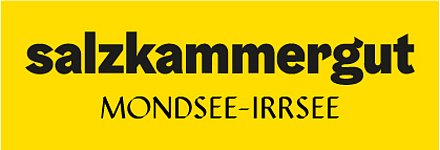Sustainability in the run-up to Christmas
Advent in Mondsee is one of the most popular Christmas markets in Upper Austria and attracts numerous visitors every year, who are enchanted by the festive atmosphere and the idyllic setting around the basilica.
This year, however, the market stands out with a special concept: for the first time, it is being organised entirely as a green event. With a clear focus on sustainability, environmental protection and the conservation of resources, Mondsee is a pioneer in the environmentally conscious organisation of Advent markets. But what makes the Advent market in Mondsee a green event and how is the implementation of these sustainable criteria guaranteed?
Why is Advent in Mondsee ideal for a green event?
With its lakes and surrounding mountains, the Mondsee-Irrsee habitat not only offers a picturesque backdrop, but is also a place that is already known for its high regard for nature and the environment. The region has been focussing on sustainable tourism for years and the Advent market is now set to continue this philosophy.
The Mondsee region is ideally placed to take this step, as the local providers, restaurateurs and also the population are deeply rooted in the regional culture, have a great interest in sustainable products and have a strong connection to our unique habitat.
What is a Green Event anyway?
A green event is an event that combines all aspects of planning, realisation and follow-up with sustainability criteria. In Austria, the "Green Events Austria" initiative has been in place for a number of years, offering specific guidelines for environmentally friendly events. These include minimising CO₂ emissions, reducing waste, using regional and organic products and promoting environmentally conscious travel to and from the event. For an event to be recognised as a Green Event, a large number of criteria must be met.
You can see here how we put this into practice in Mondsee:
The Advent market in Mondsee is based on a sustainable concept that takes all important green event criteria into account. The most important measures are
1. accessibility and climate-friendly journey
The venue, i.e. our market square and the basilica/cloister in the heart of Mondsee, is easily accessible by public transport. The 140 bus from Salzburg, the 156 bus from St. Gilgen and the Postbus shuttle with over 400 stops in 12 municipalities(click here for the app) enable an environmentally friendly journey. Visitors are also encouraged to travel by public transport in social media and through our marketing.
2. energy and resource conservation
Efficient LED lighting is used for the market's power supply and the use of energy is discontinued outside of operating hours. Decorative materials are either upcycled or reused from previous years.
3. food from organic and regional production
When it comes to catering at the Advent market, great importance is attached to regional, seasonal and predominantly organic food. At least one dish and one drink on each stand are available in organic quality and at least one dish is vegetarian. The majority of the products on offer come from the region (or from a radius of around 40 kilometres).
4. reusable instead of disposable
In line with Upper Austria's obligation to use reusable packaging from 2022, only reusable cups, plates and cutlery are used at our Advent market. Disposable plastic is avoided and drinks are served in glass bottles or our mulled wine mugs created especially for the Advent market by artist Michaela Moisl-Taurer.
5. waste separation and avoidance
At Advent in Mondsee, we focus on consistent waste separation (of unavoidable waste) with specially labelled collection points for glass, paper, metal, plastic and organic waste. We also minimise waste by only buying the amount of food we need.
6. fair trade products
Non-regional products such as coffee, tea and chocolate are sourced from fair trade, which emphasises the market's ethical standards (one example of this is the coffee from the VB Kaffee coffee roastery in Haslau).
Conclusion
This year, Advent in Mondsee is setting new standards for the sustainable organisation of Advent markets. By implementing strict green event criteria such as the use of regional, seasonal and organic products, promoting climate-friendly travel and avoiding waste, the market is becoming an environmentally friendly attraction during the Advent season. A showcase project that demonstrates how tradition and sustainability can be harmoniously combined and how sustainable events can have a positive impact on the region and its visitors.


